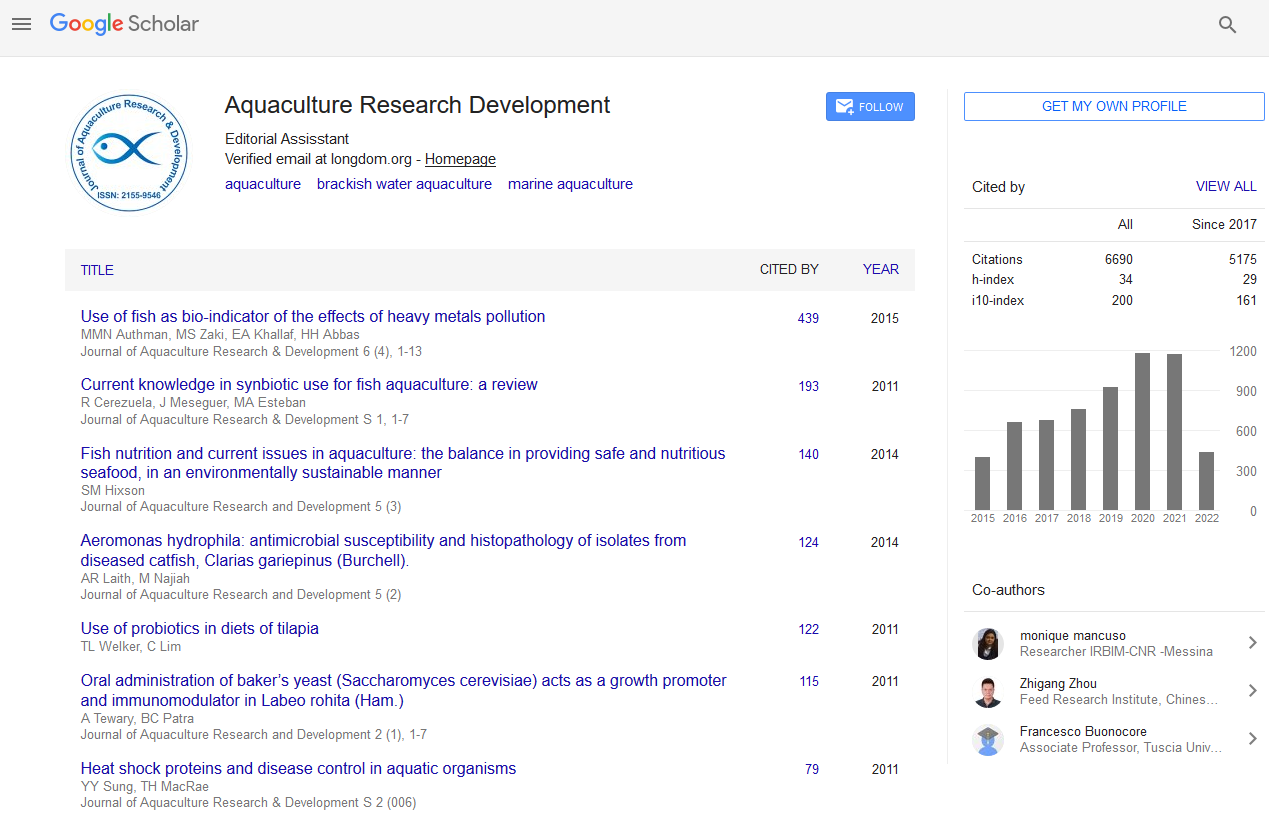PMC/PubMed Indexed Articles
Indexed In
- Online Access to Research in the Environment (OARE)
- Open J Gate
- Genamics JournalSeek
- JournalTOCs
- Scimago
- Ulrich's Periodicals Directory
- Access to Global Online Research in Agriculture (AGORA)
- Electronic Journals Library
- Centre for Agriculture and Biosciences International (CABI)
- RefSeek
- Directory of Research Journal Indexing (DRJI)
- Hamdard University
- EBSCO A-Z
- OCLC- WorldCat
- Scholarsteer
- SWB online catalog
- Virtual Library of Biology (vifabio)
- Publons
- MIAR
- University Grants Commission
- Euro Pub
- Google Scholar
Useful Links
Share This Page
Journal Flyer

Open Access Journals
- Agri and Aquaculture
- Biochemistry
- Bioinformatics & Systems Biology
- Business & Management
- Chemistry
- Clinical Sciences
- Engineering
- Food & Nutrition
- General Science
- Genetics & Molecular Biology
- Immunology & Microbiology
- Medical Sciences
- Neuroscience & Psychology
- Nursing & Health Care
- Pharmaceutical Sciences
Waste management for smoking salmon by-products to extract omega-3 fish oil
10th Euro-Global Summit on Aquaculture & Fisheries
October 08-09, 2018 | London, United Kingdom
Tarek Fouda
Tanta University, Egypt
Scientific Tracks Abstracts: J Aquac Res Development
Abstract:
The main objective of this research was to investigate the possibility of producing fish oil from smoking salmon waste by using cold pressing and wet rendering methods. The amount and the characteristics of extracted of oil were tested. The samples were used about 33.810 kg, smoked fish caused about 9.610 kg. As a salmon waste (skin, viscera, backbone frames and cuts off) it's recorded about 20% of the total mass from salmon slices. The results showed the smoking salmon waste have more than18% of oil fish per one kg of salmon waste. The oil weight from salmon by-products was increased with pressing time increase as well as oil productivity increased. The oil extraction yield increased and characterization of quality. The optimum conditions at pressing time was 180 minutes, oil weight was 93 g oil/500 g salmon by-products, oil productivity was 18.00%, and extraction efficiency were 98.46% at constant pressure. The oil weight from salmon by-products was increased with heating time increase as well as oil productivity increased. The oil extraction yield increased with the wet rendering processes at heating time of 60 minutes have oil weight about 90 g oil/500 g. Salmon by-products, oil productivity about 18.00%, and extraction efficiency was 95.23%. The oil extraction yield increased with the wet rendering processes and characterization of the oil increasing with cold pressing processes. Recent Publications 1. Lin C Y and Li R J (2009) Fuel properties of biodiesel produced from the crude fish oil from the soapstock of marine fish. Fuel Processing Technology 90(1):130-136. 2. Rizliya V and Mendis E (2014) Biological, physical, and chemical properties of fish oil and industrial applications. Advances in Seafood Processing By-products: Trends and Applications, Springer Science, New York, DOI: 10.1007/978- 1-4614-9590-1_14. 3. Sathivel S, Prinyawiwatkul W, Grimm C C, King J M and Lloyd S (2002) FA composition of crude oil recovered from catfish viscera. Journal of the American Oil Chemists' Society 79(10):989-992. 4. Shirahigue L D, Silva M O, Camargo A C, Sucasas L F D A, Borghesi R, Cabral I S R and Oetterer M (2016) The feasibility of increasing lipid extraction in Tilapia (Oreochromis niloticus) waste by proteolysis. Journal of Aquatic Food Product Technology 25(2):265-271.
Biography :
Tarek Fouda has completed his BSc degree in 1986; MSc in 1994, PhD in 1998 and; Full Professor from 2009. He is a Head of Agricultural Engineering Department, Faculty of Agriculture Tanta, Egypt. He has published more than 78 papers in reputed journals. He has worked in developing machine, food industries process, using sound and image analyses in agricultural, environmental control and waste management, minimize cost and energy. He is an Consultant and member for a lot of projects and peer Reviewer in National Authority for Quality Assurance and Accreditation of Education (NAQAAE). Addition to that he was Vice President of the TUEF 2016 Third International Environmental Forum, Tanta University, Egypt, July 12-14, 2016 and President of the International 17th Conference of Misr Society of Agricultural Engineering, Agricultural Engineering Department, Faculty of Agriculture Tanta University October 27-28, 2010. He was a Visiting Scientist, as guest research in Kyoto University, Japan also Visiting Professor to University of Sterling, United Kingdom.
E-mail: tfouda@yahoo.com


